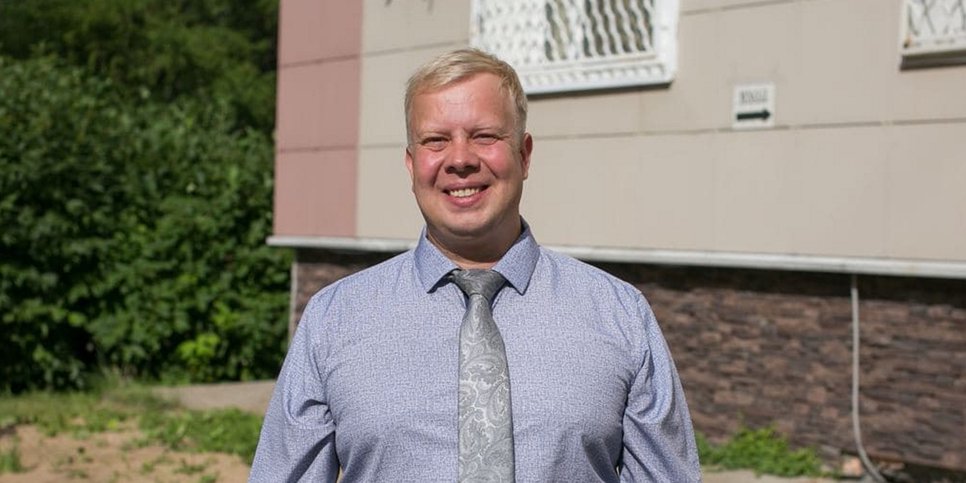In the photo: Yevgeniy Yakku at the Solombala District Court (2021)
In the photo: Yevgeniy Yakku at the Solombala District Court (2021)
An appeal in Arkhangelsk upheld the verdict against Yevgeniy Yakku. He was fined heavily for believing in God
Arkhangelsk RegionOn October 1, 2021, the Arkhangelsk Regional Court, chaired by Judge Igor Vashukov, rejected Yevgeny Yakku's appeal and upheld the sentence of the lower court. Earlier, the Solombala District Court ordered the 41-year-old believer to pay a fine of 880,000 rubles, thus recognizing peaceful conversations about the Bible as extremism. The court also decided to impose a fine on both cars of the Yakku family, which were arrested earlier, and decided to destroy the seized Bibles.
The believer still insists on his innocence. He has the right to appeal against the verdict in cassation, as well as in international instances.
The prosecutor requested for Yevgeniy 7.5 years in prison, 2.5 years of restriction of freedom, and also demanded that both arrested cars and other seized equipment be transferred to the state, and everything else, including the seized Bibles, should be destroyed.
After the Yakku family was searched, Eugene lost his new job, which he was supposed to take that day. He got a job as a janitor, but after a while he was also suddenly fired from there without explanation. In April 2019, the believer was included in the list of "terrorists and extremists" of Rosfinmonitoring.
Against the background of stress in connection with the criminal prosecution, Yevgeny's chronic illness worsened. Doctors also noted a sharp deterioration in the health of his wife Irina, who has been suffering from an autoimmune disease for many years.
During the investigation, in April 2020, Yakku's mother suffered a stroke. His father did not leave the house for about 10 years due to illness. He needed constant care, so in November of the same year, the believer decided to move his parents to his place, but on the way, Eugene's father died in the car right in his arms.
The wife of Eugene Yakku shared that in difficult times their friends were always there: "They called, expressed their feelings and love, wrote letters and sent postcards. They came to court hearings as they were restrained, and with each subsequent hearing the number of friends did not decrease.
"We have never been abandoned or abandoned," echoes the words of his wife Eugene.- Friends readily came to us, encouraged, invited to visit, and also helped us financially in legal and medical matters. They brought a lot of food."
The security forces raided the house of Yevgeniy Yakku on the morning of February 18, 2019. Two criminal cases were initiated against the believer for organizing, participating and involving other persons in the activities of an extremist organization.
After the search, he spent 1 day in a temporary detention center, and then for 2 years and 5 months, Yakku was chosen as a preventive measure in the form of a ban on certain actions. A special device was put on his leg - an electronic tracking bracelet.
During the trial, violations were revealed. One of the prosecution witnesses reported pressure from the investigator to fabricate testimony, but the investigator denied this.
Another prosecution witness, Theodosius Nesterov, a priest of one of the local churches, never met the defendant, but claimed that the magazines published by Jehovah's Witnesses "clearly contain a motive for inciting intolerance ... Although it's not on all pages and it's encrypted."
Religious scholar Sergey Ivanenko, in turn, drew the court's attention to the fact that the religious activities of Jehovah's Witnesses are not related to extremism and the decision of the Supreme Court of 2017 does not imply that believers do not have the right to continue to practice their religion together with others.
In addition to Yevgeniy Yakku, another resident of Arkhangelsk, 78-year-old Kaleria Mamykina , faced persecution for her faith. In November 2019, the investigation closed the criminal case against her for lack of corpus delicti. The believer died of complications after the coronavirus in June 2021, without waiting for the results of her rehabilitation.
Russian and foreign leaders and organizations unanimously condemn the persecution of Jehovah's Witnesses in Russia. For example, the EU countries express their concern about the current situation around believers with the following words: "The decision of the Supreme Court of the Russian Federation to ban the activities of the Administrative Center of Jehovah's Witnesses in Russia for 'extremism' opens the way for criminal prosecution of members of the organization of Jehovah's Witnesses for the mere practice of their religion. Jehovah's Witnesses, like all other religious groups, must be able to peacefully enjoy freedom of assembly without interference, as guaranteed by the Constitution of the Russian Federation, as well as by Russia's international commitments and international human rights standards."


